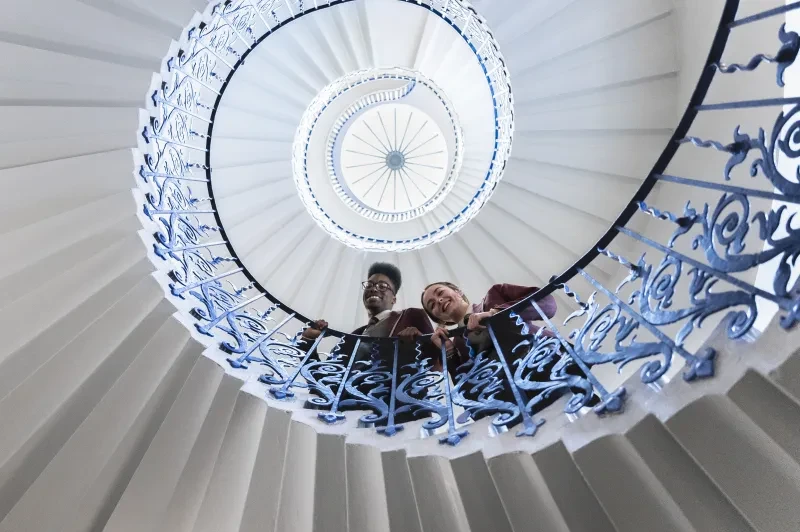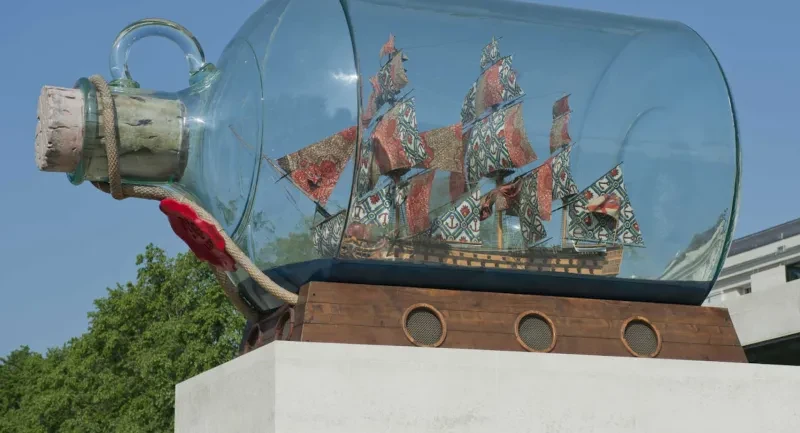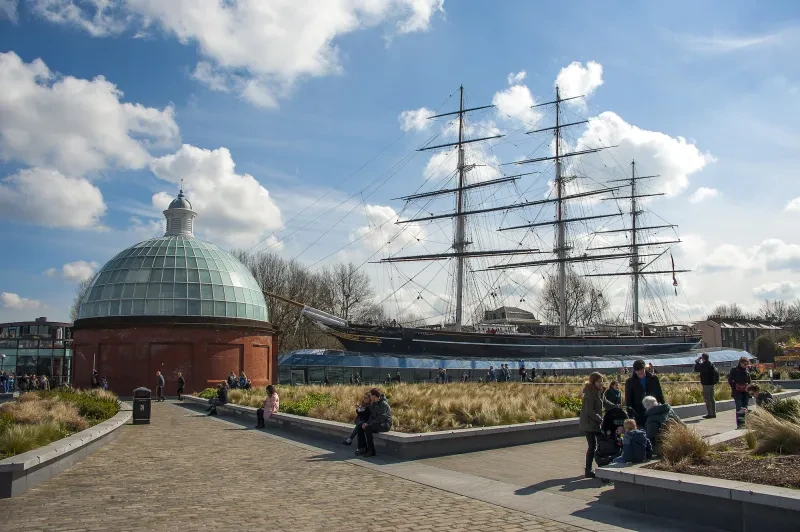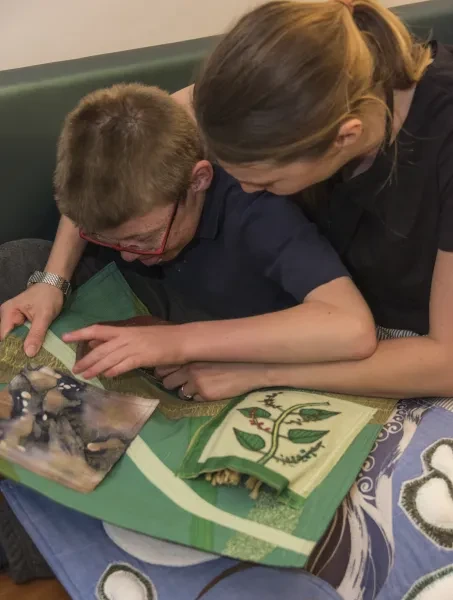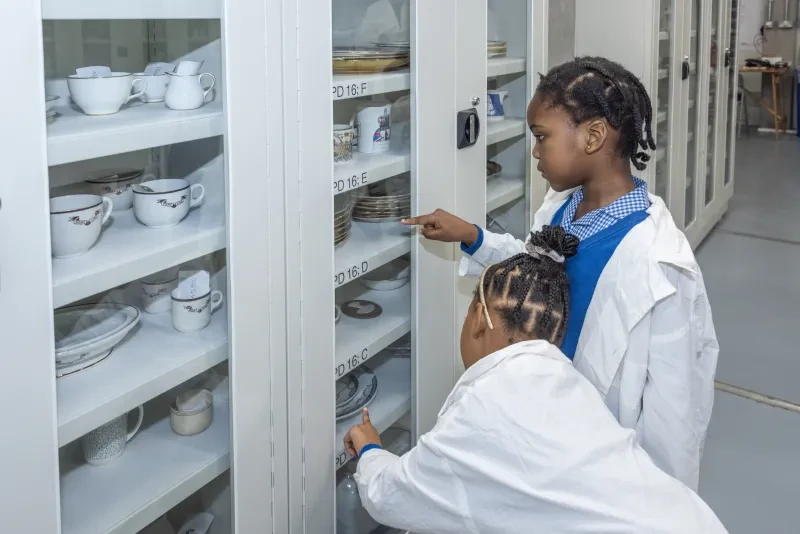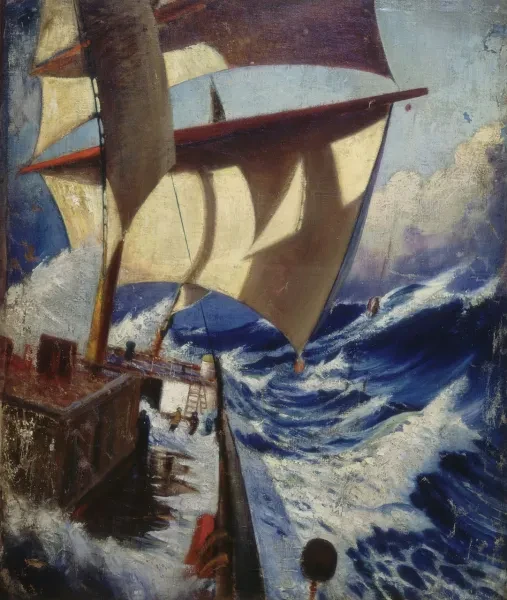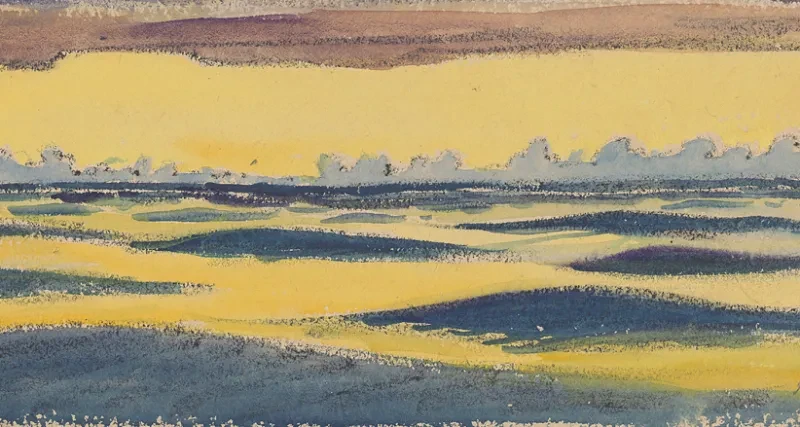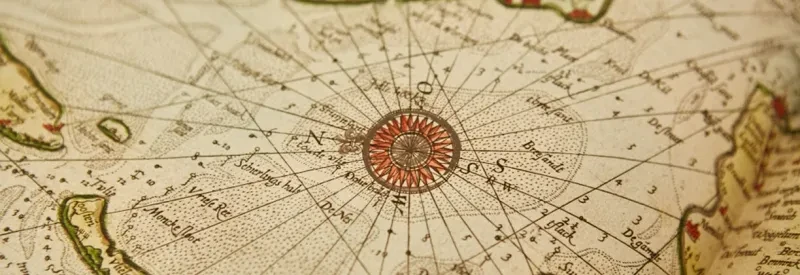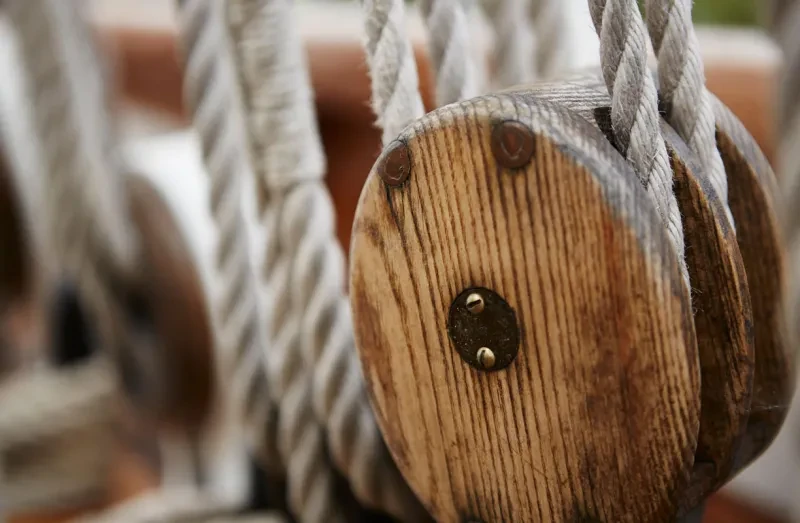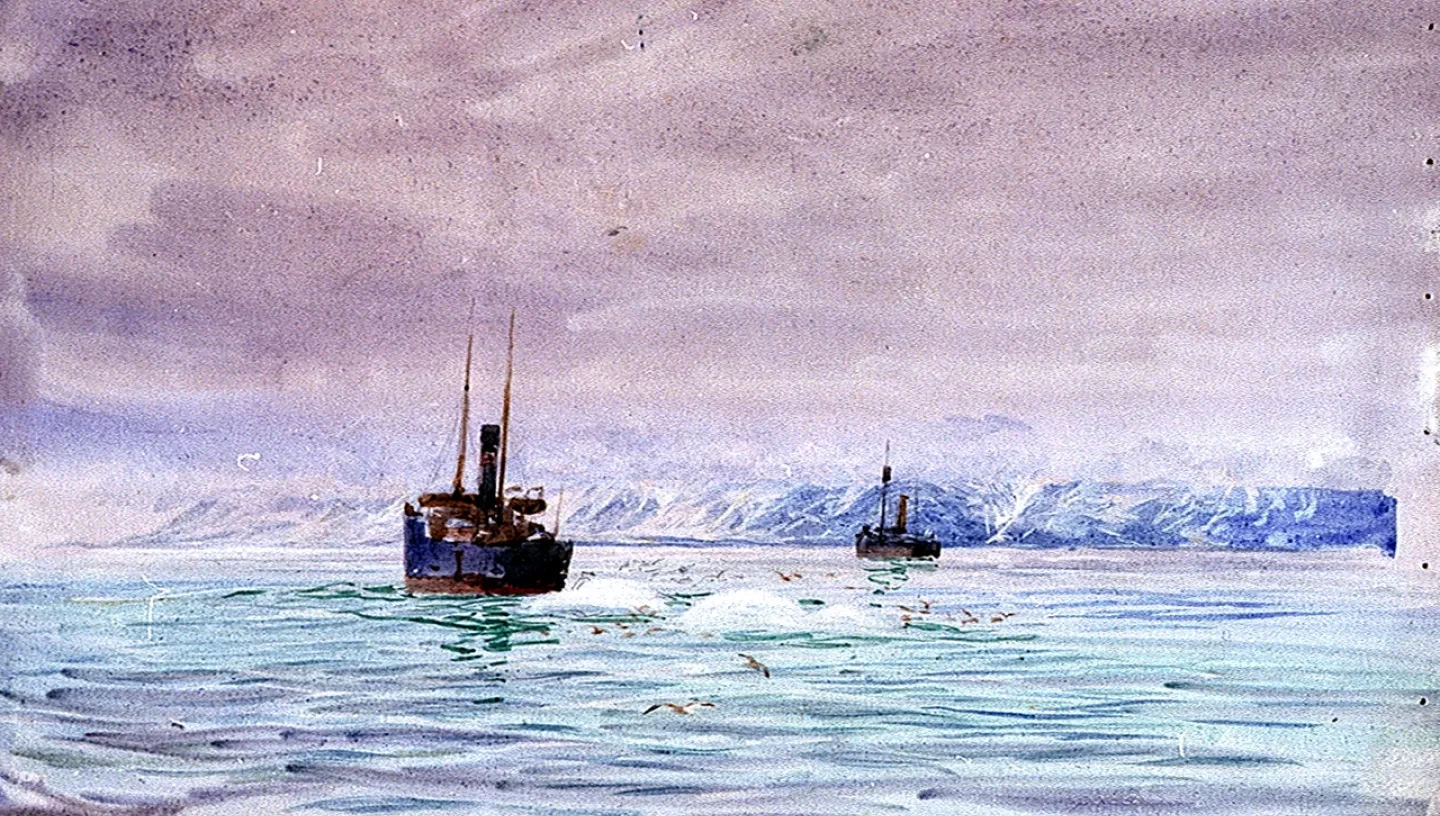
The Secondary programme at the National Maritime Museum and the Queen’s House concentrates on historical enquiry skills. We offer a range of curriculum-linked enquiry days across all key stages that encourage learners to critically evaluate a wide range of sources. They will handle replica objects, examine real objects in our galleries and have the unique opportunity to get up close to original documents from our library and archive. Structured around a key enquiry question, these days are designed to bring complex histories to life and encourage a deeper understanding of your chosen topic and the nature of historic enquiry.
You are also welcome to make a self-guided visit to our sites. Please see our self-guided school visits page for more information.
To find out more about what we offer for home education groups, please see our home education page.
School bookings for spring and summer term 2026 at the National Maritime Museum, the Queen's house, Cutty Sark and the Prince Philip Maritime Collections Centre are now open. Know what you want to book already? Please complete a booking enquiry form.
Find out about the Royal Observatory Schools Programme from January 2026 here
Sign up to our schools mailing lists to keep up to date:
Onsite Secondary and Post 16 sessions 2025-26
Expand each title for more information
Transatlantic Enslavement Enquiry Day (KS3)
| Location: | National Maritime Museum |
| Key Stage: | KS3 |
| Curriculum links: | History, Citizenship |
| Session times: | Tuesday 10.00 - 14.00 |
| Capacity: | 60 pupils per session |
| Price: | FREE |
Starting from an enquiry question, use critical thinking skills to analyse objects, original manuscripts and museum displays. Develop your understanding of a curriculum-linked topic whilst considering some of the fundamentals of historical enquiry.
During a Transatlantic Enslavement Enquiry day, learners will consider the question: What can the museum's collections reveal about the lives of enslaved people? They will:
- Examine and analyse a range of original documents
- Explore the Atlantic Worlds Gallery to consider what modern artworks and historical objects can tell us about this history
- Handle objects that explore the Transatlantic Trade in Enslaved People and different forms of resistance
Links to resources:
[Transatlantic Enslavement Enquiry Day, Legacies of Transatlantic Slavery - Video Resource | Royal Museums Greenwich]
Spanish Armada Enquiry Day (KS3 and KS4)
| Location: | National Maritime Museum/ Queen's House |
| Key Stage: | KS3 and KS4 |
| Curriculum links: | History |
| Session times: | Tuesday and Friday 10.00 - 14.00 |
| Capacity: | 60 pupils per session |
| Price: | FREE |
This session is available on the following dates in 2025/26:
7 November and 14 November
3, 6, 10 and 13 March
19 May, 23 and 30 June
3 July and 10 July
Starting from an enquiry question, use critical thinking skills to analyse objects, original manuscripts and museum displays. Develop understanding of a curriculum-linked topic whilst considering some of the fundamentals of historical enquiry.
Learners will consider the question: Is the Spanish Armada more important as a real event or a legend? They will:
- Study the Armada Portrait of Elizabeth I and consider how she used the event to shape her image
- Handle replica objects to understand Tudor sailors and seafaring
- Look at original documents and work out what they tell us about preparations for both the Spanish and English Armadas
Links to resources:
Please note: We are aware that Spanish Armada is the AQA Elizabethan England Historical environment site for 2027. As a result we have had a significant increase in demand for our session. To help schools we have:
- Added new dates for 2025/6 and 2026/7 on Tuesdays and Fridays
- For Summer Term 2026 to Spring 2027 we will offer a self guided Armada worksheet. Please book your slot with our Bookings Team
- New digital resources and a Livestream event will be available Autumn 2026
Migration and Movement Enquiry Day (KS3 and KS4)
| Location: | National Maritime Museum |
| Key Stage: | KS3 and KS4 |
| Curriculum links: | History, Citizenship |
| Session times: | Tuesday 10.00 - 14.00 |
| Capacity: | 60 pupils per session |
| Price: | FREE |
Starting from an enquiry question, use critical thinking skills to analyse objects, original manuscripts and museum displays. Deepen understanding of a curriculum-linked topic whilst considering some of the fundamentals of historical enquiry.
During a Migration Enquiry Day learners will consider the questions: Why have people throughout history migrated to Britain? What can museum collections reveal about their experiences and impact? They will:
- Handle objects to learn more about the experiences of different migrant groups
- Explore galleries to consider the connections between the British Empire and migration
- Examine original documents and consider how we can use them to find out more about migration
Links to resources:
A Level History Enquiry Days (KS5)
| Location: | National Maritime Museum |
| Key Stage: | Post 16 |
| Curriculum links: | History |
| Session times: | Friday 10.00 - 14.00 |
| Capacity: | 40 students per session |
| Price: | FREE |
This session is available on the following dates in 2025/26:
17 October, 24 October, 28 November, 5 December, 12 December
16 January, 23 January, 6 February, 13 February, 27 February
20 March and 26 June
Explore the Museum’s galleries, manuscripts and objects to gain a deeper and richer understanding of your subject. Choose from the following topics:
- The British Empire: Trade and the Navy (including the growth of the East India
Company) - Stuart Seafaring (including the Anglo-Dutch Wars and the start of the British Empire)
- The development of the British Navy
If you are studying a different topic you think is relevant to the Museum, contact learning@rmg.co.uk to discuss developing a new session.
Empire (KS3) from Spring 2026
| Location: | National Maritime Museum |
| Key Stage: | KS3 |
| Curriculum links: | History |
| Session times: | Tuesday 10.00 - 14.00 |
| Capacity: | 60 students per session |
| Price: | FREE |
We will be piloting a renewed Empire session from Spring Term 2026. The pilot dates are:
17 March and 24 March
Sessions are available to book on Tuesdays in the Summer Term. Full details of the session will appear on the website after the pilots in March.
Please contact learning@rmg.co.uk to book a pilot session or to find out more.
